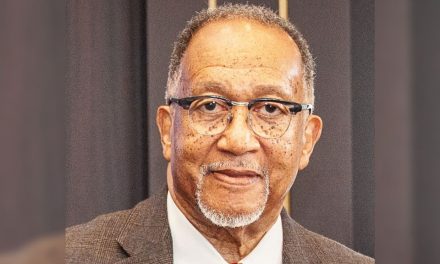By Mike Cason
A bill that would allow a limited number of people serving life in prison whose crimes did not cause a physical injury receive consideration for new sentences failed Thursday in the Alabama House of Representatives.
HB29 by Rep. Chris England, D-Tuscaloosa, commonly called the “second chance bill,” lost on a procedural vote. The vote was 49-48 in favor, but three-fifths was required to pass the procedural step.
A survey conducted by the polling firm Cygnal found that 88% of Alabama voters favored “second chance” legislation for nonviolent offenders, the Appleseed Center for Law and Justice reported in February.
People eligible to apply for new sentences would have had to meet specific criteria, including that they have been in prison at least 24 years.
The House had approved a similar bill by England last year, but it did not pass the Senate.
England and others who have advocated for the legislation say it is fair because those who would be eligible to apply for new sentences would not receive life without parole sentences if they were sentenced under current law.
England, an advocate for sentencing and criminal justice reforms in Alabama, said about 150 people would have been eligible for consideration for new sentences.
“This is not a mass release of anybody,” England said. “What it is is an opportunity if you meet a very specific set of circumstances to be eligible for review for resentencing.”
HB29 would apply to people sentenced under Alabama’s Habitual Felony Offender Act (HFOA), a three-strikes-and-you’re-out style law that enhances punishments for repeat offenders, before that law changed in 2000.
These factors would be required for people to be eligible to file a motion in court for a reduction in sentence:
- They were sentenced under the HFOA for any offense other than homicide, a sex offense, or an offense that caused serious physical injury to another person.
- They were sentenced to life without parole.
- They were sentenced by the trial court before May 26, 2000.
The motion for a new sentence would be heard in the court where the person was convicted, and would be heard by the original sentencing judge, the judge’s successor, or a retired judge assigned to the case.
The district attorney in the county would be notified of the motion and would have a right to be heard on the request. The victim would be notified at least 30 days before a hearing on the motion for a new sentence and could testify or file a statement with the court about the request.
“The judge shall give considerable weight to any objection made by the victim,” the bill says.
The bill says the court reduce the sentence based on laws in effect at the time of the motion, could change the sentence to time already served, or could deny the request for a new sentence. A person denied could not make a second request.
The court would consider:
- The underlying offense.
- The individual’s conduct while in the custody of the Department of Corrections.
- The age of the individual at the time the motion is filed, including relevant research regarding the decline in criminal behavior as individuals grow older.
- The individual’s likelihood of success after release based on the availability of a structured, supportive re-entry program.
- Whether the individual used a firearm in furtherance of the offense. If so, the judge shall give considerable weight to this fact.
The bill says the law would be repealed on October 1, 2029.
“Many of these individuals who have served over 25 years in prison are well over 60, 65 years old, a lion’s share of them, actually are,” England said. “And if you’re able to make it through the process of 25 years in prison and maintain a relatively clean record and adding in the fact that if you were sentenced at a different time you’d likely be out already anyway, in my opinion, to me, this feels like the right thing to do.”











